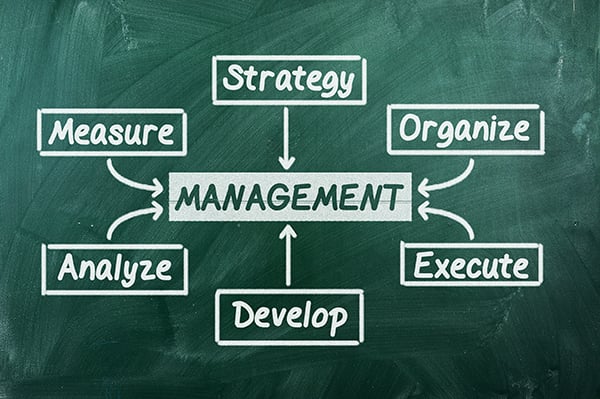 While commercial real estate is a distinct industry with its own rules and practices, many of the practices that drive it are similar to those in the rest of the business world. If you aren't a full-time corporate real estate professional and still have to manage a portfolio, while you might get tripped up by some of the jargon and language, underneath it all is just good business sense.
While commercial real estate is a distinct industry with its own rules and practices, many of the practices that drive it are similar to those in the rest of the business world. If you aren't a full-time corporate real estate professional and still have to manage a portfolio, while you might get tripped up by some of the jargon and language, underneath it all is just good business sense.
Don't Go It Alone
Managing your company's property portfolio isn't something that you should be doing on your own. Professional property managers have vast experience in a whole range of areas. Many can do everything from reconcile property budgets to figuring out why a boiler is misbehaving. While we'll give you some of the basic principles of property management here, hiring a pro should end up saving you more money than you spend.
Repairs. Maintenance. Choose Both.
Commercial real estate is just like any other large, complicated asset that your company owns or rents. Periodically, it breaks, and preventive maintenance is a part of reducing the number and severity of those breakdowns. Just as with fleet maintenance or IT management, you will have to strike a balance between wasting money by doing too much maintenance and risking higher repair costs by doing too little.
Question Everything
Two factors drive the commercial real estate industry -- negotiability and complication. Brokers have a saying that everything is negotiable, and it is. What this means is that whenever you need to make a change, you don't have to accept what you are given. You can try to negotiate something better and, frequently, you will. Since real estate contracts are usually long-term and the nature of business can change in the short term, this even applies when you're in the middle of a lease. If you need to make a change, ask. Contracts can be changed through negotiation, after all.
The rule of negotiating and questioning everything applies to vendor contracts, too. Just like in other areas of business, vendors tend to get complacent over time. Questioning them by periodically rebidding their contracts can save your company significant money.
Complication refers to the multiple moving parts that go into every aspect of a commercial real estate deal. Leases run to scores of pages. Expense reconcilations a can easily span 20 different expense lines. Something as simple as calculating the size of an office space actually requires complicated measurements governed by a set of arcane rules. What all of this means is that you should question everything you receive. When you get a budget or a reconciliation, audit it. Have your own experts measure your spaces, and see what you come up with.
Getting it Done Early Is Too Late
When you manage a commercial real estate portfolio, you are almost a full-time scheduler. Rents and expense reimbursements are due on a certain date. Move outs happen at a set date, options usually expire at a set time before the move out date, and on and on. Furthermore, because everything moves slowly in the commercial real estate world, changes take months and years instead of days and weeks. What all of this means is that you are operating on a much longer time horizon than you might otherwise expect.
Other great Commercial Real Estate articles:
Parking and Your Office Lease
Simplifying Site Selection with Technology
Six Amenities to Look for in Office Space








